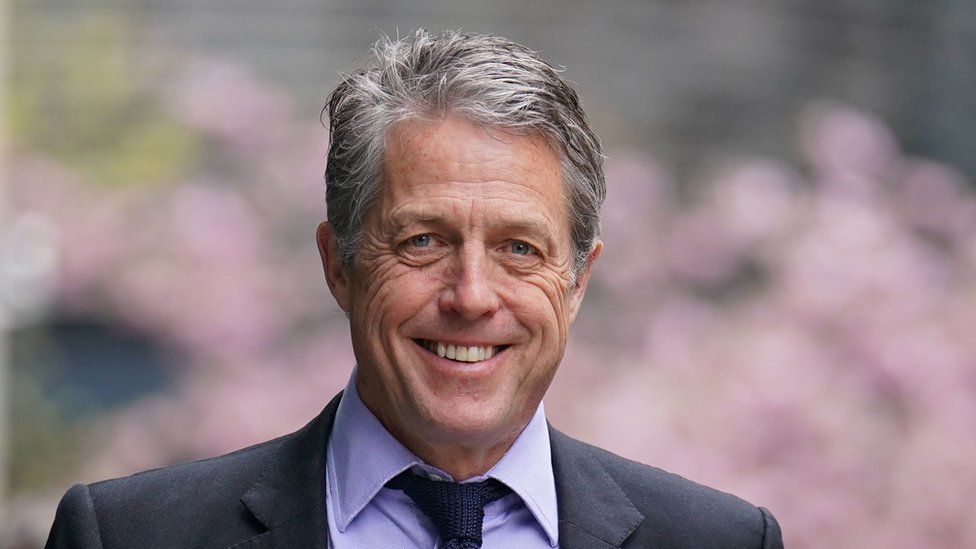
The High Court ruled that some lawsuits had been submitted too late to proceed
By Tom Symonds
Home Affairs correspondent
Hugh Grant has been given permission to sue the publisher of the Sun newspaper for using blagging and phone-tapping against him.
A judge has dismissed an attempt from News Group Newspapers (NGN) to block his legal action because he did not bring it within six years.
The actor claims private investigators working for the Sun tapped his phone, bugged his house and car, and burgled his home to get stories about him.
The publisher denies the claims.
However, the court refused Mr Grant permission to sue NGN for allegedly hacking his phone voicemails, as the judge ruled he could have brought a case much earlier.
Some of the evidence against the newspaper was contained in a witness statement made by private investigator Gavin Burrows.
A similar legal argument centred on the claims of the Duke of Sussex is due to be heard by the High Court in July.
NGN said it was “pleased that, following our application, the High Court has ruled that Mr Grant is statute-barred from bringing a phone hacking claim against The Sun.”
“NGN strongly denies the various historical allegations of unlawful information gathering contained in what remains of Mr Grant’s claim.”
Hugh Grant’s statement in the case claims that for years, parent company News UK lied about its involvement in phone hacking and illegal information gathering.
He said the company had a “vast, long-lasting and deliberate policy strategy plan of false denials and other concealment in relation to The Sun, to prevent me, and others in a similar position, from bringing claims against them”.
This included, he said, false denials to the Leveson Inquiry into Press Standards, a press complaints body, and in public statements.
Cases of this kind in the civil courts have to be brought within six years, and this time limitation has become a major legal battleground in cases against newspapers, because allegations of wrongdoing often go back 30 years.
Publishers attempt to argue that cases should not go to trial because alleged victims of unlawful newsgathering delayed their legal action.
Mr Justice Fancourt said, in his judgment, Mr Grant had long believed that private investigators had been paid to look into his private life.
However it was only in 2021 when News Group Newspapers disclosed invoices for their payments that Mr Grant had potential evidence capable of allowing him to win his case in court.
This judgment does not mean the issue of whether Mr Grant’s claim is too late has been decided, but it will now be considered at the trial next year.
The judge said there was a realistic chance the actor would establish at trial that before seeing this evidence “he could not reasonably have believed with sufficient confidence that he may have been targeted by PIs instructed by the Sun”.
In a statement issued by his lawyer, Mr Grant said: “I am pleased that my case will be allowed to go to trial, which is what I have always wanted – because it is necessary that the truth comes out about the activities of the Sun.
“As my case makes clear, the allegations go far wider and deeper than voicemail interception.”








